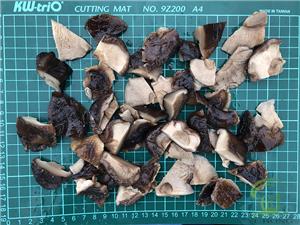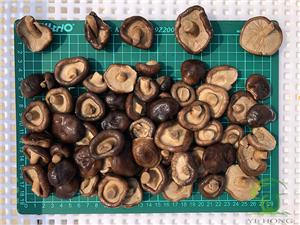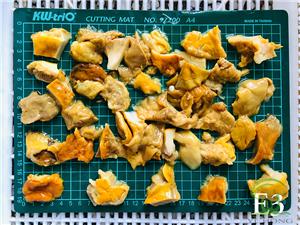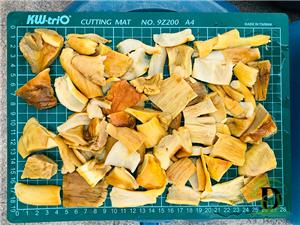Vodnik za uživanje vloženih gob
Pickled mushrooms are products of fresh shiitake mushrooms that have been marinated and processed. The edible part needs to be judged in combination with the processing technology and nutritional structure. The edible parts of fresh shiitake mushrooms include caps, pleats and stipe. The edible value of these parts will not change substantially after salting. The cap is the most hypertrophic part of shiitake mushrooms. It is rich in polysaccharides, amino acids and dietary fiber. It has a flexible taste after salting. It is the main edible part. The cap is rich in umami substances. After salting, the flavor is stronger and the stipe is tougher. After salting, after full soaking and cooking, the taste will become soft and tender. However, one thing to note is that if the shiitake mushrooms deteriorate, mildew, or impurities are brought into the pickling container during the salting process, then no part should be eaten anymore to prevent health risks. In addition, if the roots of the salted shiitake mushrooms have a thicker and harder lignified part, it is recommended to remove them before eating to avoid affecting the taste and digestion.
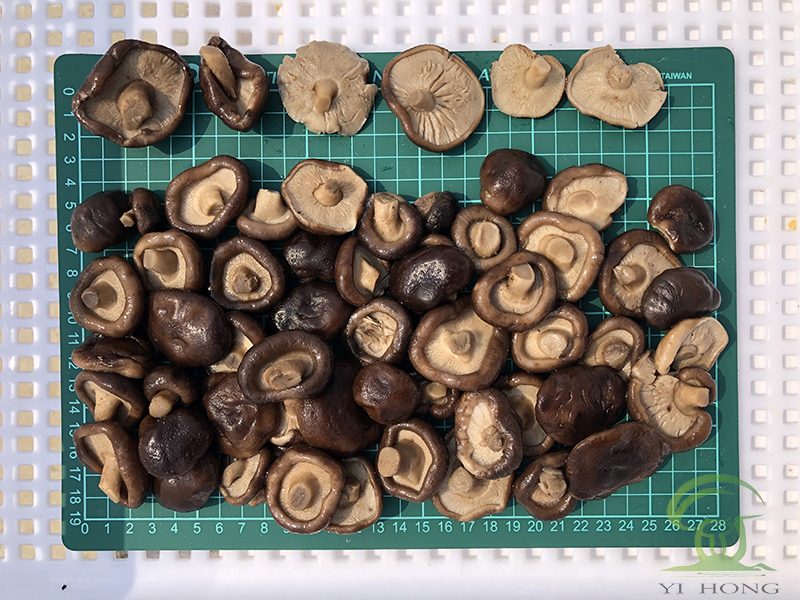
If the processing technology is not mature or stored improperly, it may cause poisoning of edible pickled mushrooms. Common reasons include insufficient pickling time, pollution of raw materials, and mildew caused by humid storage environment. Symptoms of poisoning usually appear within a few hours to a day after consumption. Specific manifestations may include digestive system symptoms, including nausea, vomiting, abdominal pain, diarrhea, etc. In severe cases, watery stools or mucus stools may appear. Some patients are also accompanied by symptoms such as loss of appetite and acid reflux. If pickled mushrooms produce toxins due to mildew, it may also cause neurological symptoms, such as dizziness, headache, fatigue, blurred vision, etc., and long-term intake may also damage liver function. Frequent vomiting and diarrhea after poisoning can lead to loss of water and electrolytes in the body, which can easily cause dehydration and electrolyte disorders, manifested as dry mouth, low urine, limb weakness, rapid heart rate, etc., and may cause shock in severe cases. In addition, there are allergic reactions. A small number of people are allergic to the protein in shiitake mushrooms or the substances produced during the pickling process, and may have allergic symptoms such as itchy skin, erythema, and difficulty breathing. If the above symptoms occur during or after eating pickled mushrooms, you should stop eating immediately and seek medical attention in time, especially children, the elderly and people with weak immunity. Early intervention is required to prevent the disease from getting worse.
The difficulty of digestion of pickled mushrooms is also a point of curiosity for many people. This requires analysis from both the composition and the processing method. Fresh shiitake mushrooms themselves are rich in dietary fiber. These ingredients are not easily broken down by human digestive enzymes. Under normal circumstances, they will promote intestinal peristalsis. However, after salting treatment, the mushroom cells absorb water and expand, and the fibrous structure becomes loose, which can reduce the difficulty of digestion to a certain extent. However, the high salt properties of pickled mushrooms may also affect digestive function, because after excessive salt enters the gastrointestinal tract, it will stimulate the gastric mucosa to secrete gastric acid. Long-term consumption in large quantities may cause stomach discomfort and be unfriendly to patients with gastric ulcers and gastritis. In short, healthy people who eat pickled mushrooms that are fully soaked and cooked in moderation usually do not have problems. However, people with weak digestive function need to control their consumption and not consume too much at once.

